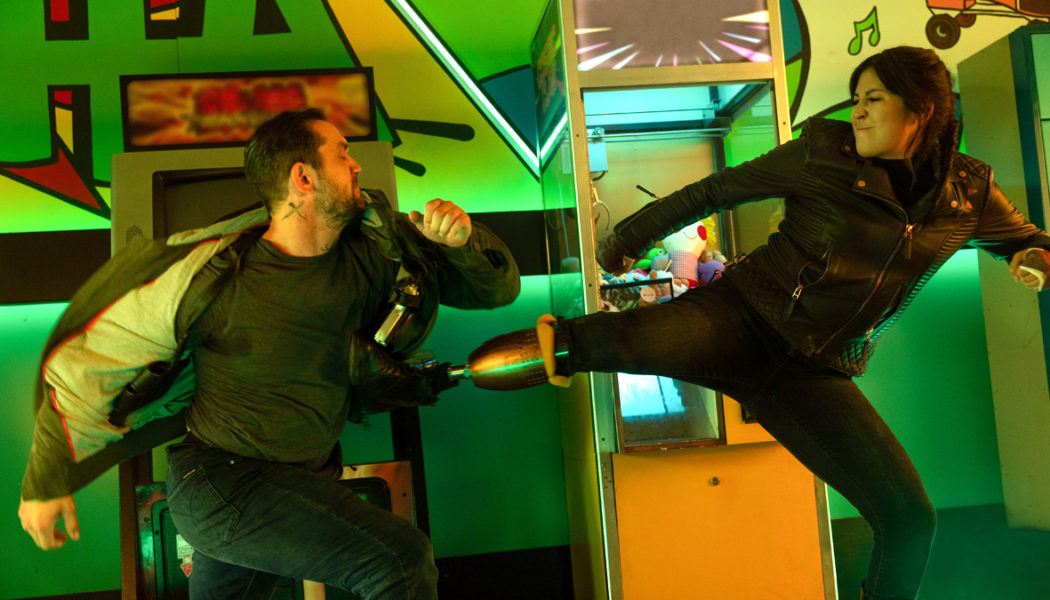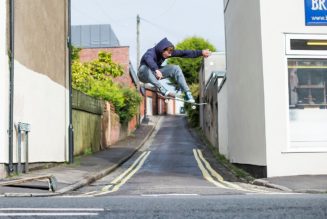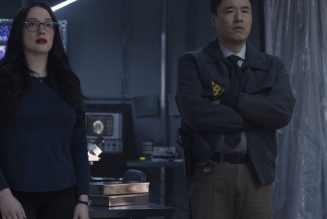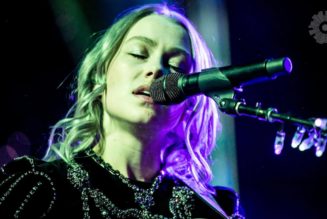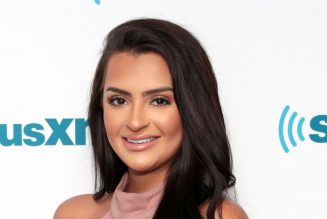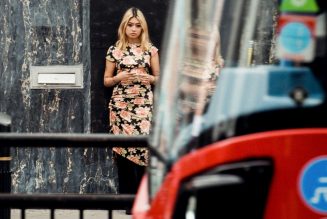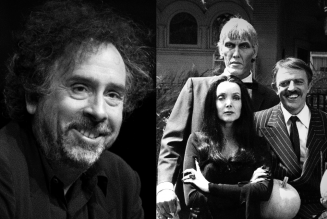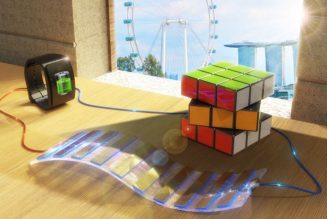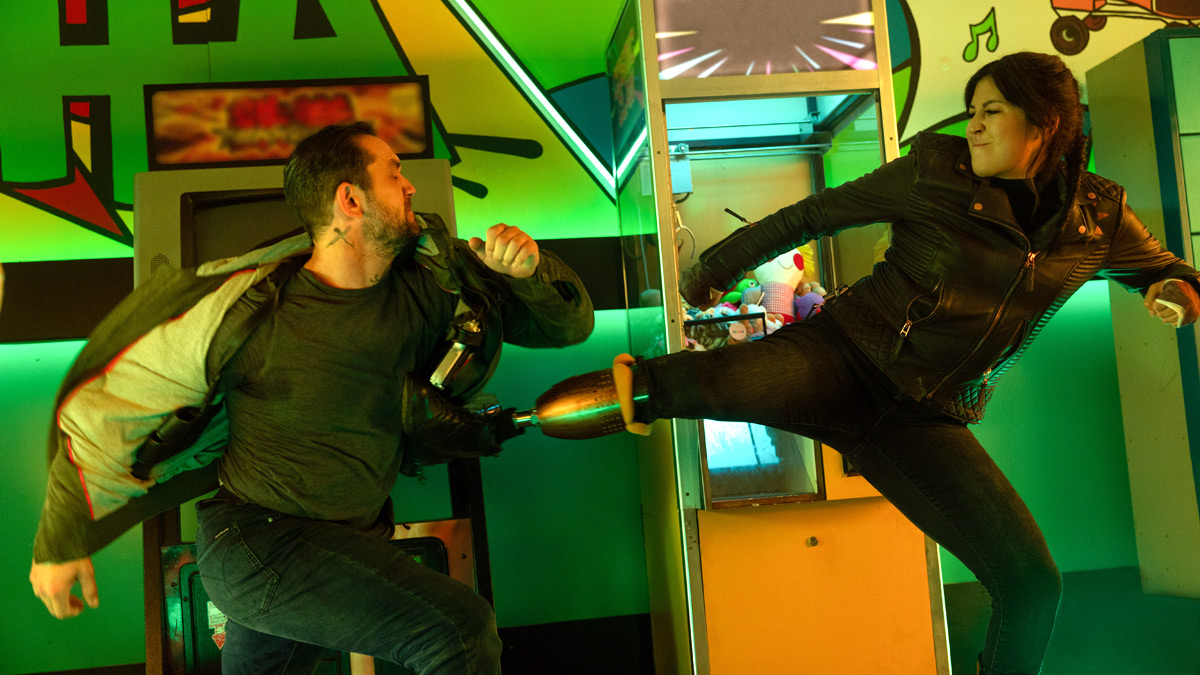
The Disney+ series Echo is groundbreaking in a lot of respects — it’s the first Marvel Disney+ series to be rated TV-MA, the first series to be released under the “Marvel Spotlight” banner, and the first show to star an actor like Alaqua Cox, a Native woman who happens to be an incredible fighter, as well as deaf. It’s that latter thing which had a direct impact on how director/executive producer Sydney Freeland (Reservation Dogs, Star Trek: Strange New Worlds, Grey’s Anatomy) approached her episodes of Echo. To be specific, it changed Freeland’s definition of a close-up.
In Echo, Cox reprises the role of Maya Lopez, a character first introduced in Hawkeye: In the previous Disney+ series, Maya served as the leader of a gang called the Tracksuit Mafia, who had a longstanding connection with the notorious Kingpin (Vincent D’Onofrio). However, following the death of her father (Zahn McClarnon), she returns home to reconnect with family and face her demons, discovering something new about herself along the way.
When Freeland got involved with Echo, she started taking American Sign Language (ASL) classes because she “wanted to have a basic foundation of being able to communicate with Alaqua,” she tells Consequence. In the process of learning the language, though, she came to understand that the words being signed by a person’s hands “are only half of what’s being communicated. The other part of what’s being communicated lies in your facial expressions, your body language, all of those things. You need both the signing and the facial expressions to get the full emotional intent of what’s being communicated.”
Related Video
This meant that when the camera was on Cox for a close-up, those shots had to be wide enough to include both her facial expressions as well as her hands. “That became a close-up. And because that was a close-up for Alaqua Cox, that meant that was a close-up for everybody else. It actually ended up dictating our entire visual style.”
Freeland credits revelations like that to the level of representation Echo had both in front of and behind the camera. “Our character is Indigenous, but she’s also deaf. And so for myself, I’m Indigenous, but I’m not deaf. So that meant that we needed to have deaf writers in the writer’s room, and deaf consultants behind the scenes.” This included ASL master Doug Ridloff, who translated the scripts from English to ASL — “because as I came to learn, the two languages are not one-to-one, there’s actually an incredible amount of difference between the two.”
The series features a full opening credits sequence set to Yeah Yeah Yeahs’ “Burning,” a theme song choice that Freeland tracks back to her original pitch for directing the series. “I included a playlist, and one of the songs was Yeah Yeah Yeahs. It wasn’t that specific song, but it initially was part of the creation and the prep of the project, and then organically presented itself later down the line in post.”
